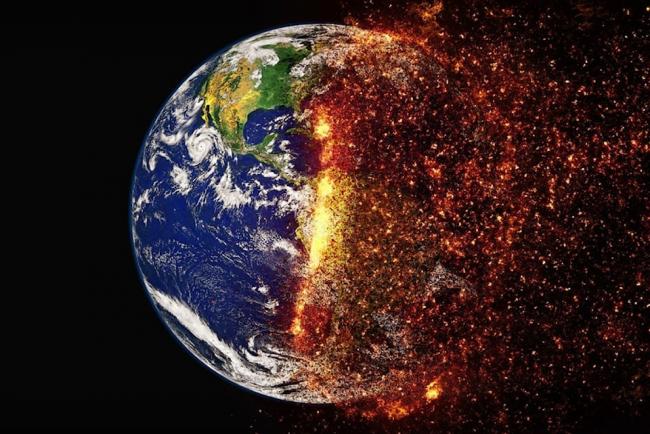Articles Menu

Oct. 12, 2024
On October 19, British Columbians will head to the polls.
Far too often, election debates pit climate action and affordability solutions against each other. But nothing could be further from the truth – the climate crisis is an affordability issue, and the failure to act on climate is costing us dearly. Taking action now to confront the climate crisis can simultaneously improve people’s economic and employment security.
There are many viable solutions waiting to be implemented, and this election is an opportunity for our political leaders to step up and seize the initiative. Affordability is already front and centre when it comes to election priorities; now it’s time to bring climate action into the conversation.
British Columbians remember the devastating weather in 2021 – in just a few harrowing months, the province experienced a heat dome, raging wildfires, and atmospheric rivers. Hundreds of people and billions of sea creatures died. These unnatural disasters cost BC up to $17 billion dollars, including up to $2.6 billion in lost wages.
Just last year the B.C. government spent $1.1 billion on wildfire response alone, with $400 million more going towards flooding and other disaster response. These expenditures represent a significant portion of the province’s nearly $3.5-billion deficit in 2023.
And governments aren’t the only ones facing skyrocketing expenses. The cost of food, energy, and home insurance is being driven up by climate change (indeed, there are now significant parts of the U.S. where people can no longer secure home insurance due to the likelihood of climate disaster). These burdens are particularly shouldered by the most vulnerable populations, including racialized communities, unhoused people, people with disabilities and low-income households.
Our government is desperately trying to clean up the damage caused by unnatural disasters by piling money into emergency response. But without sufficiently funding measures that address the root cause – the burning of fossil fuels – we will remain in a never-ending cycle of disaster response. British Columbians deserve better.
The price of climate-friendly policies and programs pales in comparison to the astronomical cost of inaction. Economists predict that by next year, 50 per cent of Canada’s annual economic growth will be swallowed by the costs of unnatural disasters. Canadians stand to lose an average of $720 annually as a result of the climate emergency; tax hikes from governments forced to clean up after climate disasters, spiralling mortgage insurance premiums, job losses as companies scale back due to instability, and increased costs of goods due to supply chain vulnerabilities are all becoming more likely.
Perhaps most worrying: up to 194,000 jobs are predicted to be lost by next year in Canada compared to a climate-stable scenario. We have already seen how extreme weather has wreaked havoc on BC’s tourism, forestry, and agriculture industries (just look at what happened to Okanagan fruit growers this summer). These devastating impacts will grow worse every year unless we take action.
When it comes to advancing climate policies that make life more affordable, the Atlantic provinces are way ahead of us. Prince Edward Island has rolled out a program that gives a free heat pump to all households earning less than $100,000 a year, while free efficiency assessments and upgrades have resulted in more than $4.8 billion in lifetime energy savings for Nova Scotians.
A climate-smart B.C. government should:
● expand rebates for homes converting from gas to electric heat pumps (currently, only 7 per cent of B.C. households have a heat pump).
● make public transit more reliable, accessible and less expensive, expand subsidies for e-bikes, and build out support for electric vehicles, to liberate people from escalating gas prices.
● demonstrate climate leadership by keeping public utilities like BC Transit, Translink and BC Hydro as affordable and sustainable as possible.
● develop more complete communities in rural areas so people have less distance to travel for essential services.
A green economy is the best option for job creation and prosperity. If Canada makes good on its commitment to reach net zero emissions by 2050, it could result in an increase of two million jobs.
Additionally, Indigenous leadership, governance and traditional knowledge is vital for climate adaptation and mitigation. Indigenous communities are far more likely to protect forests and other natural carbon sinks, which is essential in the fight against climate change and allows for sustainable wealth creation. Indigenous Guardian programs (in which Indigenous peoples are employed to steward and protect their land) have had between a 20:1 and a 10:1 return on investment each year in B.C. We need to be funding these programs at an adequate level.
British Columbia has everything it needs to ensure prosperity and stability during these decades of extreme climate change. This is not the time for our elected leaders to “knock on wood” and hope that the fires and floods will lessen in coming years. Failure to act at scale to confront the climate crisis will have serious and negative impacts on people’s cost of living, public infrastructure and services.
What we need now is real leadership and action on the climate emergency to put us on the path to a renewable and more socially inclusive B.C.
Emiko Newman is co-ordinator of the BC Climate Emergency Campaign. Omri Haiven is a researcher and M.A student in communication at Simon Fraser University with a focus on renewable energy and climate change communication.
[Top image: Climate change needs to be front and centre when British Columbians head to the polls.TheDigitalArtist/Pixabay]